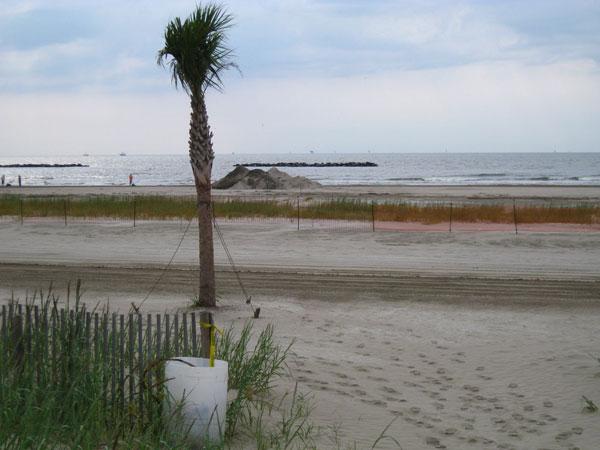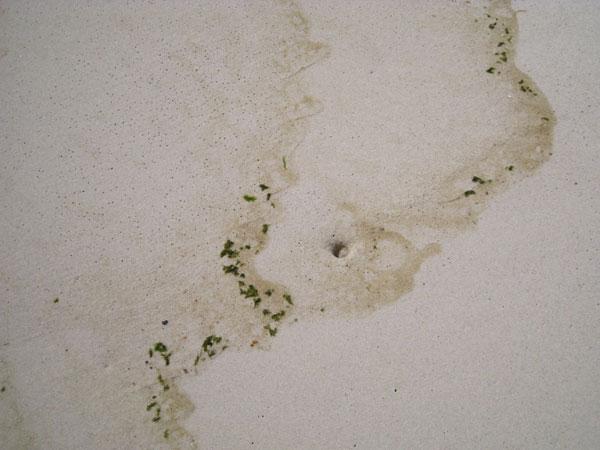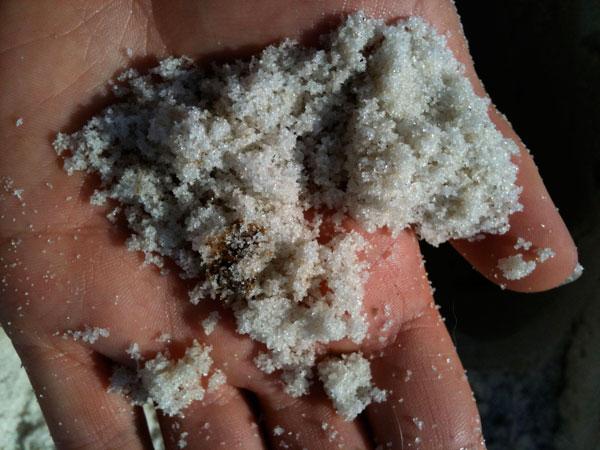
Impact of Gulf Oil Spill on Smallest Creatures Remains Unknown

Get the world’s most fascinating discoveries delivered straight to your inbox.
You are now subscribed
Your newsletter sign-up was successful
Want to add more newsletters?

Delivered Daily
Daily Newsletter
Sign up for the latest discoveries, groundbreaking research and fascinating breakthroughs that impact you and the wider world direct to your inbox.

Once a week
Life's Little Mysteries
Feed your curiosity with an exclusive mystery every week, solved with science and delivered direct to your inbox before it's seen anywhere else.

Once a week
How It Works
Sign up to our free science & technology newsletter for your weekly fix of fascinating articles, quick quizzes, amazing images, and more

Delivered daily
Space.com Newsletter
Breaking space news, the latest updates on rocket launches, skywatching events and more!

Once a month
Watch This Space
Sign up to our monthly entertainment newsletter to keep up with all our coverage of the latest sci-fi and space movies, tv shows, games and books.

Once a week
Night Sky This Week
Discover this week's must-see night sky events, moon phases, and stunning astrophotos. Sign up for our skywatching newsletter and explore the universe with us!
Join the club
Get full access to premium articles, exclusive features and a growing list of member rewards.
Each morning for about a week and a half, Holly Bik opened up her computer, plotted a route on Google Maps, and then spent the next eight or so hours driving along the Gulf of Mexico, stopping at around five or six different beaches a day, collecting samples.
Despite arriving at the Gulf Coast five months after BP's Deepwater Horizon oil spill, "everywhere I went there was some sign of oil," said Bik, a postdoctoral researcher at the University of New Hampshire, who is studying how the oil spill has affected diversity of the tiny creatures that live in the intertidal regions of the beaches. "It was awful," she said.
Under a grant from the National Science Foundation, Bik and a research team from the University of New Hampshire, Auburn University in Alabama, and the University of Texas, San Antonio, will now analyze the DNA from the samples she took to determine what species are present, and then compare the results to samples taken before the spill.
Life's a beach
Bik covered about 1,300 miles (2,100 kilometer) driving from beach to beach. The back seat of the car was loaded down with containers of dry ice to keep the samples fresh, and her primary piece of equipment was a 4-inch- (10-centimeter-) long tube that she would stick in the sand to collect samples at various depths. The sample would then be bagged, labeled and put on ice.
She saw evidence of oil at sandy beaches, muddy beaches, tourist destinations, national parks and out-of-the way beaches.
"It was shocking how far the impact of the spill reached," she said. "Turning up at a beach and finding a globby ball of tar that smelled like diesel, and I wasn't even seeing it at its worst."
Get the world’s most fascinating discoveries delivered straight to your inbox.
Bik, who also blogged and posted to Twitter about her experience, tweeted during one of her sampling trips: "Went swimming on Pensacola beach, swallowed seawater by mistake, then found oil on beach."
Many of the beaches in Florida had begun to regain tourists and cleaning crews were minimal, but even in Panama City, a popular tourist destination, and far from the spill site, Bik said digging into the sand still turned up signs of oil.
In Pensacola Beach, Fla., visible oil was found after digging down into just a few inches of sand. Credit: Holly Bik
Bottom of the food chain
Despite being small, and often not visible to the naked eye, the so-called meiofaunal organisms the researchers are studying are still vitally important to the ecosystem to which they belong.
"The meiofaunal organisms the fungi, algae and microscopic animals form the base of the food chain . They are important for providing food for primary consumers. If you have major impacts on the bottom of the food chain, that will work its way up, and you will see obvious impacts on the big creatures," Bik said.
Nematode worms, in particular, are incredibly abundant and diverse and play an important ecological role in marine environments. Between hundreds of thousands and millions of different species can live in just one square meter (about 11 square feet).
Aside from forming the base of the food chain, nematodes are important in nutrient cycles, such as making nutrients like nitrogen available for other organisms.
So far, it's unclear how the spill has affected this community, Bik said, but it's hard to imagine that there won't be an impact.
"Just judging by the appearance of the beaches and the widespread oil I think there will be a change. But we don't know what that is yet," she said.
 Live Science Plus
Live Science Plus












